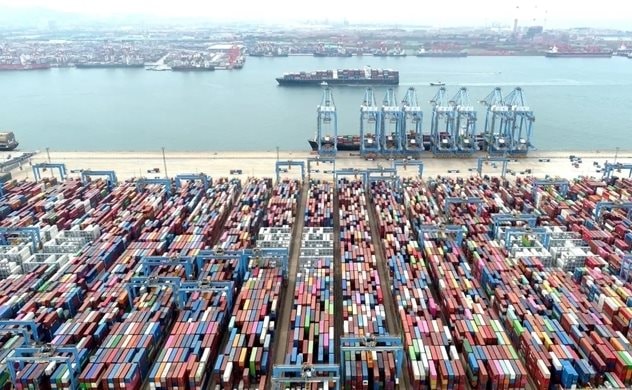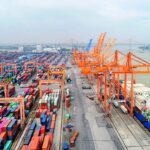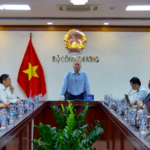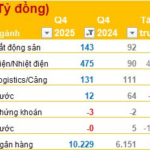
Vietnam’s monthly export turnover averaged $37.4 billion, with May and June both surpassing $39.5 billion. July is expected to reach a new high of over $41.6 billion.
On the other hand, the import turnover for the past seven months is estimated at $252.1 billion, a 17.9% increase compared to the same period in 2024. As production and exports recover, businesses are importing more raw materials to serve export orders.
The trade balance for the seven months is estimated to have a surplus of $9.7 billion. This figure is lower than the $12.6 billion surplus recorded in the same period last year. However, a moderate surplus can improve foreign exchange reserves, stabilize monetary policies, and contribute to sustainable import and export development in the medium and long term.
Recently, the Import-Export Department (Ministry of Industry and Trade) has coordinated with relevant units to report to the Government to issue Decree No. 146 dated June 12, 2025, on the decentralization of powers and responsibilities in the industrial and commercial fields. The Department also submitted to the Minister for signing and issuing Circular No. 38 dated June 19, 2025, amending and supplementing a number of provisions on decentralization of administrative procedures in the field under the management of the Ministry of Industry and Trade and Circular No. 40 dated June 22, 2025, stipulating the issuance of certificates of origin and approval for self-certification of origin.
In addition, the Department has simplified the dossier or implementation time of 44 administrative procedures out of a total of 85 procedures under its management. The compliance cost of these 44 administrative procedures is estimated to decrease from VND 1,306 billion to VND 882 billion, equivalent to 32.5%. Notably, the decentralization of the issuance of certificates of origin (C/O) to localities is being implemented by the Import-Export Department in coordination with relevant agencies and units to train local businesses and the Department of Industry and Trade staff on rules of origin and self-certification of origin.
According to Mr. Nguyen Anh Son, Director of the Import-Export Department, in the context of deep integration, enterprises need to master trade policies, proactively update technical barriers from import markets, improve product quality, invest in technology, and apply digital transformation to meet international standards.
Regarding the functions of the authorities, Minister of Industry and Trade Nguyen Hong Dien requested that units under the Ministry continue to improve the quality of consulting and perfecting mechanisms and policies, especially decrees and circulars internalizing international commitments under FTAs to which Vietnam is a member.
At the same time, it is necessary to facilitate the connection of domestic enterprises to the production and supply chains of foreign-invested enterprises (FDI) and large global enterprises, creating markets for the development of the processing industry. Trade promotion activities should be strengthened, and market information should be provided promptly, including information about market demand (especially new and potential markets), new regulations and policies of the host market, and policy advice for enterprises, associations, and import and export sectors.
Unveiling Untapped Export Markets for Innovative Products
The consumption of Vietnamese sci-tech products in foreign markets remains limited. This poses a challenge for coordination between ministries, industries, businesses, and the Vietnamese trade offices abroad in bringing innovative Vietnamese products to the global market.
International Trade Remains a Bright Spot Amidst Global Commerce’s Turbulent Times
In a complex geopolitical landscape, amidst escalating trade tensions, rising non-tariff barriers, and stringent environmental standards, Vietnam’s foreign trade performance remains robust. The country continues to assert its role as a pivotal driver of economic growth, showcasing resilience and dynamism in the face of global challenges.




















